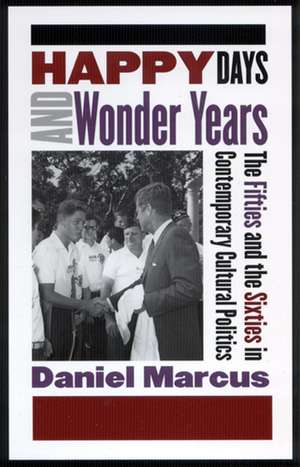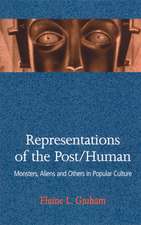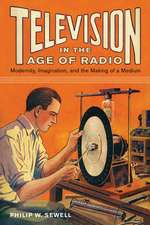Happy Days and Wonder Years: The Fifties and the Sixties in Contemporary Cultural Politics
Autor Daniel Marcusen Limba Engleză Paperback – 10 mar 2004
In the twenty-first century, why do we keep talking about the Fifties and the Sixties? The stark contrast between these decades, their concurrence with the childhood and youth of the baby boomers, and the emergence of television and rock and roll help to explain their symbolic power. In Happy Days and Wonder Years, Daniel Marcus reveals how interpretations of these decades have figured in the cultural politics of the United States since 1970.
From Ronald Reagan's image as a Fifties Cold Warrior to Bill Clinton's fandom for Elvis Presley and John F. Kennedy, politicians have invoked the Fifties and the Sixties to connect to their public. Marcus shows how films, television, music, and memoirs have responded to the political nostalgia of today, and why our entertainment remains immersed in reruns, revivals, and references to earlier times. This book offers a new understanding of how politics and popular culture have influenced our notions of the past, and how events from long ago continue to shape our understanding of the present day.
From Ronald Reagan's image as a Fifties Cold Warrior to Bill Clinton's fandom for Elvis Presley and John F. Kennedy, politicians have invoked the Fifties and the Sixties to connect to their public. Marcus shows how films, television, music, and memoirs have responded to the political nostalgia of today, and why our entertainment remains immersed in reruns, revivals, and references to earlier times. This book offers a new understanding of how politics and popular culture have influenced our notions of the past, and how events from long ago continue to shape our understanding of the present day.
Preț: 292.29 lei
Nou
Puncte Express: 438
Preț estimativ în valută:
55.93€ • 57.70$ • 46.67£
55.93€ • 57.70$ • 46.67£
Carte tipărită la comandă
Livrare economică 26 martie-09 aprilie
Preluare comenzi: 021 569.72.76
Specificații
ISBN-13: 9780813533919
ISBN-10: 0813533910
Pagini: 280
Ilustrații: 1
Dimensiuni: 152 x 229 x 20 mm
Greutate: 0.45 kg
Ediția:None
Editura: Rutgers University Press
Colecția Rutgers University Press
ISBN-10: 0813533910
Pagini: 280
Ilustrații: 1
Dimensiuni: 152 x 229 x 20 mm
Greutate: 0.45 kg
Ediția:None
Editura: Rutgers University Press
Colecția Rutgers University Press
Notă biografică
Daniel Marcus is an assistant professor in the department of communication at Wayne State University. As a member of the Paper Tiger Television collective, he edited ROAR! The Paper Tiger Guide to Media Activism.
Cuprins
Acknowledgments
Introduction
Chapter 1: The Fifties in the 1970s: Representations in a Cultural Revival
Chapter 2: The Conservative Uses of Nostalgia
Chapter 3: Nostalgia Embodied: Ronald Reagan as Icon
Chapter 4: Popular Culture and the Response to Conservative Nostalgia
Chapter 5: Contests and Contestations: The Sixties Legacy during the Decline of Reagan
Chapter 6: The Reinflection of the Past: The Presidential Election of 1992
Chapter 7: Elvis Has Left the Building: The Resurgence of the Right
Conclusion
Notes
Index
About the Author
Introduction
Chapter 1: The Fifties in the 1970s: Representations in a Cultural Revival
Chapter 2: The Conservative Uses of Nostalgia
Chapter 3: Nostalgia Embodied: Ronald Reagan as Icon
Chapter 4: Popular Culture and the Response to Conservative Nostalgia
Chapter 5: Contests and Contestations: The Sixties Legacy during the Decline of Reagan
Chapter 6: The Reinflection of the Past: The Presidential Election of 1992
Chapter 7: Elvis Has Left the Building: The Resurgence of the Right
Conclusion
Notes
Index
About the Author
Descriere
In the twenty-first century, why do we keep talking about the Fifties and the Sixties? The stark contrast between these decades, their concurrence with the childhood and youth of the baby boomers, and the emergence of television and rock and roll help to explain their symbolic power. In Happy Days and Wonder Years, Daniel Marcus reveals how interpretations of these decades have figured in the cultural politics of the United States since 1970.










